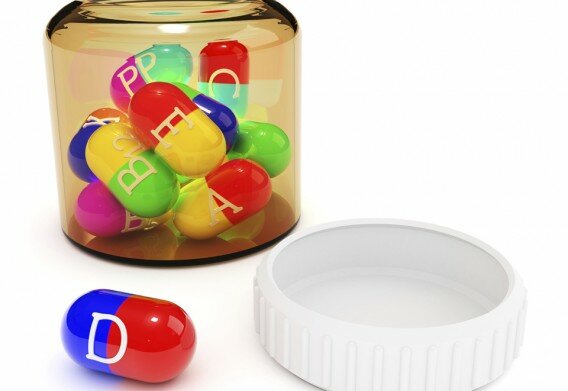Reduce Joint Inflammation With Carotenoids
Beta-cryptoxanthin may sound like an alien invader from a 1950s science fiction movie, but it’s actually not alien at all. In fact, it’s quite friendly. And if you regularly eat foods that contain this carotenoid, you’ll enjoy several healthy benefits.
According to new research, one of those benefits may include the prevention of inflammation that triggers arthritis.
Carotenoids help lower risk of synovitis
First, a little biology…
A synovial joint is where two or more bones meet and are lubricated with blood plasma filtered through a synovial membrane. Most of the joints of the body are synovial, such as the hip, elbow and wrist. Synovitis is an inflammation that prompts swelling of the synovial membrane. And as you can imagine, it can be quite painful.
In this month’s issue of the American Journal of Clinical Nutrition, researchers at the University of Manchester report on an investigation of the hypothesis that dietary carotenoids may be associated with a lower risk of developing synovitis in two or more joint groups; what they call inflammatory polyarthritis, which is a form of rheumatoid arthritis. Previous studies have shown that certain carotenoids contain antioxidants that can help prevent joint inflammation.
The Manchester team examined dietary diaries completed by more than 25,000 subjects. All of the subjects were followed up to identify new cases of synovitis. Nearly 90 cases were reported. When the dietary data was scrutinised for carotenoid intake and matched with synovitis data, the researchers came up with these results:
- Average daily intake of beta-cryptoxanthin was 40 percent lower in subjects who developed synovitis compared to those who did not
- Average daily intake of another carotenoid – zeaxanthin – was 20 percent lower in subjects who developed synovitis compared to those who did not
- Subjects who consumed the most foods that contained both of these carotenoids had a significantly lower risk of developing inflammatory polyarthritis than subjects who consumed the least of the two carotenoids
In their conclusion the authors noted that these findings parallel earlier trials showing that, ‘a modest increase in beta-cryptoxanthin intake, equivalent to one glass of freshly squeezed orange juice per day, is associated with a reduced risk of developing inflammatory disorders such as rheumatoid arthritis.’
Get a variety of fruit and vegetables
In addition to protection against inflammatory polyarthritis, studies show that beta-cryptoxanthin contributes to respiratory health. According to a 2004 study, subjects with the highest intake of beta-c had 30 percent lower risk of developing lung cancer compared to those with the lowest intake.
As with other carotenoids, the best sources of beta-cryptoxanthin are fruits (oranges, tangerines, watermelon, peaches, papaya, plums, nectarines, and apricots) and vegetables (sweet red peppers, pumpkin, squash, corn, carrots, cilantro and pickles).
And if you eat a good mix of all these foods you’ll be getting a variety of carotenoids, such as zeaxanthin, alpha carotene, lycopene, lutein and others. And the key word here is ‘variety’.
It is becoming clearer that carotenoids function similarly to the B-complex of vitamins in that they’re more powerful together than they are alone. Which is why a rich diet with a full array of carotenoids may provide more health benefits than isolating and supplementing with any one individually.
Did you find this information useful?
Then why not get more expert health recommendations just like this delivered direct to your inbox?
"It is truly refreshing to read a newsletter on the topic of alternative medicine which is scientifically based and reviewed by professionals..." - Robert Sinott
No spam pledge: We’ll never rent, misuse or abuse your email address. As The Daily Health is a free e-letter, you will occasionally receive carefully selected advertising messages from us and third parties. By signing up, you are consenting to receive these promotions. You can unsubscribe at any time. See our privacy policy.Disclaimer: This article is part of the Daily Health's extensive research archive. The research and information contained in this article was accurate at the the time of publication but may have been updated since the date of publication. Consult our most recent articles for the latest research on alternative health and natural breakthroughs.
Bear in mind the material provided in this content is for information purposes only. We are not addressing anyone’s personal situation. Please consult with your own physician before acting on any recommendations contained herein.










